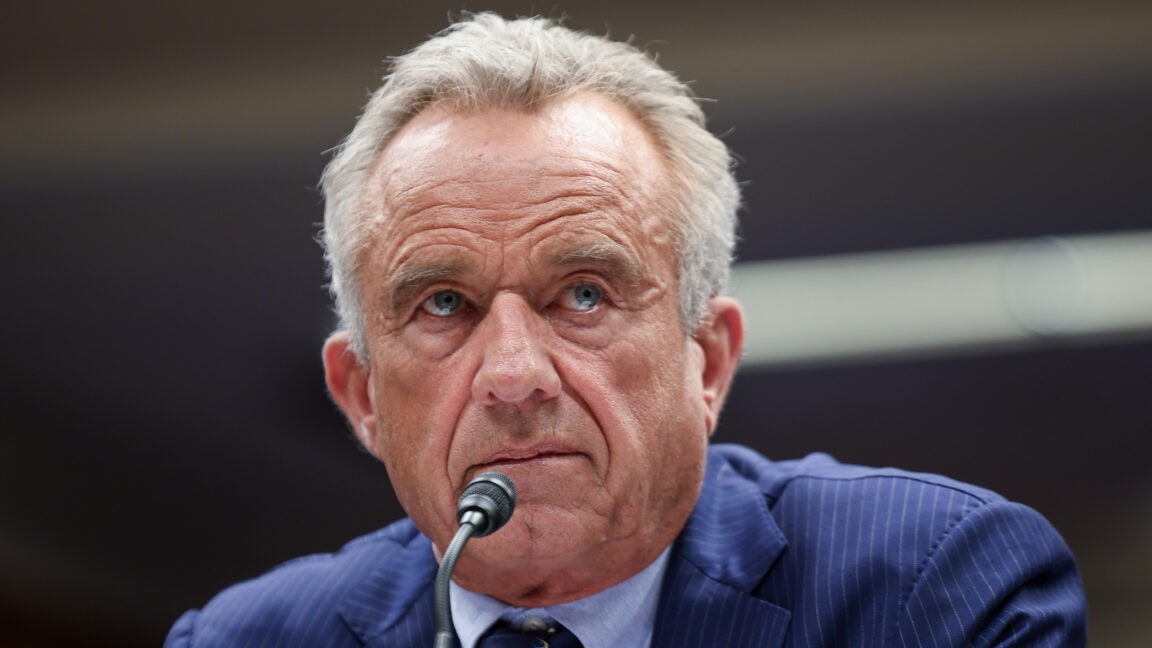Introduction
In a move that has stirred both controversy and curiosity, Robert F. Kennedy Jr. has set his sights on a pivotal program that is crucial to the United States’ childhood immunization framework. This program, which has long been a linchpin for ensuring vaccine availability and affordability, is now in the crosshairs of RFK Jr.’s reformative ambitions. The implications of such changes could be profound, affecting not only public health but also the pharmaceutical landscape in the US.
The Program Under Scrutiny
At the heart of this debate is a little-known yet vital program established in the late 20th century to address a burgeoning crisis. During that period, vaccine makers were on the brink of exiting the US market due to financial and legal pressures. To counteract this, the government introduced a program designed to stabilize the vaccine supply chain and ensure that childhood immunizations remained accessible and affordable for all Americans.
Key Features of the Program
- Provides indemnity to vaccine manufacturers against certain liabilities.
- Facilitates the procurement and distribution of vaccines at a national scale.
- Ensures pricing controls to make vaccines affordable to the public.
- Creates a compensation fund for vaccine-related injuries.
This program, while not often in the public eye, has been instrumental in maintaining high vaccination rates and preventing the resurgence of vaccine-preventable diseases.
RFK Jr.’s Proposed Changes
RFK Jr. has been a vocal critic of various aspects of public health policy, particularly those related to vaccinations. His latest proposal seeks to dismantle or significantly alter the existing framework that supports vaccine manufacturers in the US. The details of his proposal focus on reducing the legal protections afforded to these companies and restructuring the financial mechanisms that underpin the program.
Potential Impacts
- Increased financial and legal risks for vaccine manufacturers, potentially leading to reduced investment in vaccine development.
- Possible shortages of essential vaccines if manufacturers decide to exit the US market.
- Higher vaccine costs due to reduced government intervention and increased liability insurance premiums for manufacturers.
- Challenges in maintaining current immunization rates, risking public health.
Expert Reactions
The proposal has elicited a spectrum of reactions from experts across the fields of public health, pharmaceuticals, and law. Here are some noteworthy perspectives:
| Expert | Perspective |
|---|---|
| Dr. Jane Smith, Epidemiologist | Expresses concern over potential vaccine shortages and public health risks. |
| John Doe, Pharmaceutical Executive | Warns of the financial instability this could introduce to the vaccine market. |
| Emily Zhang, Legal Analyst | Highlights the legal complexities and potential court cases that could arise from these changes. |
Historical Context and Lessons Learned
The establishment of the current program was a response to historical challenges that nearly crippled the vaccine supply chain in the US. Learning from past mistakes, the government sought to create a balanced approach that would protect public health while ensuring the viability of the vaccine industry. The proposed changes by RFK Jr. raise questions about the potential for history to repeat itself if these safeguards are removed.
Lessons from the Past
- The importance of government intervention in maintaining public health infrastructure.
- The delicate balance between legal protection and accountability for pharmaceutical companies.
- The necessity of ensuring vaccine affordability and accessibility to prevent disease outbreaks.
Source: RFK Jr. wants to change program that stopped vaccine makers from leaving US market
Conclusion
As RFK Jr. continues to push for changes to the program that underpins childhood immunizations in the US, the debate is likely to intensify. Stakeholders from various sectors will need to weigh the potential benefits and risks of such a policy shift carefully. The future of public health and the stability of the vaccine market hang in the balance, making this a critical issue to watch in the coming months.
Tags: RFK Jr., vaccine policy, public health, immunization, pharmaceutical industry, US healthcare, 2025
Image source: Original Article





